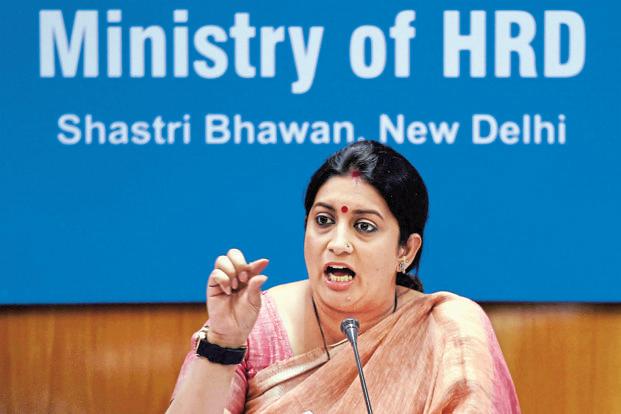
New Delhi: Revision of no-detention policy, promotion of Sanskrit, and bringing back Class 10 board examinations are some of the key changes that the central government may include in its new education policy, the human resource development ministry said on Wednesday.
The HRD ministry released a 43-page document detailing several inputs for the new policy due after a gap of three decades on the www.mygov.in website. The document also focuses on addressing gender discrimination, the creation of educational tribunals, and a common curriculum for science, mathematics and English.
Here are some of the main takeaways from the HRD ministry’s inputs to the draft national education policy 2016:
1.Present provisions of no-detention policy will be amended, as it has seriously affected the academic performance of students. The no-detention policy will be limited up to class V and the system of detention will be restored at the upper primary stage.
2.Mandatory for students to take class X board examination conducted by the Board to which their school is affiliated.
3. The National Council of Educational Research and Training (NCERT) will address issues of deteriorating quality of school education and periodic renewal of curricula so as to move from rote learning to facilitate understanding and encourage a spirit of enquiry.
4. A common national curriculum will be designed for science, mathematics and English.
5. A National Fellowship Fund will be created for students belonging to economically weaker sections. This will seek to cover tuition, learning materials, and living expenses of a million students.
6.Online maintenance of all records of a child from the time of admission till the time of leaving the school will be made mandatory.
7.Keeping in view the special importance of Sanskrit to the growth and development of Indian languages and its unique contribution to the cultural unity of the country, facilities for teaching Sanskrit at schools and universities will be offered.
8.A separate cadre of principals and headmasters will be created, selected on merit and aptitude.
9.Separate education tribunals will be established at the centre and in states to deal with litigation and address public grievances against government as well as private schools and institutions. These bodies will be headed by a retired high court judge.
10. Some foreign universities, from the top 200 in the world, will be encouraged to establish their presence in India through collaboration with MHRD. At the same time, Indian institutions will also be allowed to set up campuses abroad.
11.The government will take steps for reaching the long pending goal of raising the investment in education sector to at least 6% of GDP as a priority.
[“Source-Livemint”]












